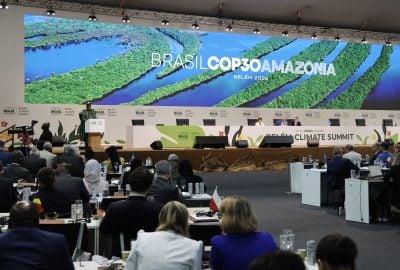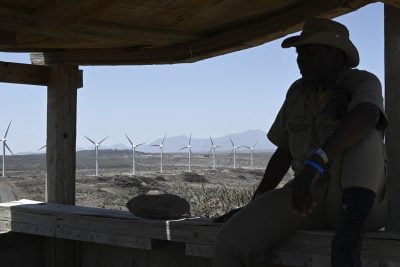The developers of the new port of Badagry in Nigeria have been awarded a license to develop a free trade zone (FTZ), named Maritime Africa Economic City, on the site.
New port projects in Nigeria have been affected by the severe downturn in the national economy and the fall in trade volumes but new container handling capacity will be needed in the long term, so Badagry is likely to proceed.
A total of 1,100 hectares of land have been set aside for the project, including the port and associated FTZ, which will be designed for industrial and manufacturing companies. The consortium hopes that it can attract $2.5bn in investment. The Nigeria Export Processing Zones Authority awarded the licence, which will allow investors to benefit from tax concessions and the ability to repatriate all profits.
Badagry, which was first mooted by the federal government in 2005, is to be developed by APM Terminals in association with a number of Nigerian private sector companies. Even in its initial stage, it will be twice the size of Apapa, which is the current main container terminal serving Lagos, with annual handling capacity of 1.8m TEU, or standard sized containers, a year.
The port will have container, general cargo, fuel import and roll-on roll-off terminals, while road and rail connections are to be provided. The existing Lagos ports have limited room for expansion.
The government therefore hopes that two new ports can be developed 60km west and east of Lagos respectively, at Badagry and Lekki. The former is expected to have a draught of 17m, which will allow access for the new generation of container vessels that are starting to serve African ports. Its development will give Nigeria a deepwater port capable of competing with Tema in Ghana, Lomé in Togo and Kribi in Cameroon.
Lagos State Governor Akinwunmi Ambode has talked of Badagry being “the largest deep sea port in Africa upon its completion.” Yet Tanger Med in Morocco is already bigger than the Nigerian port is likely to ever be, Durban in South Africa is unlikely to be overtaken by Badagry and even Tema is likely to be bigger than any port in Nigeria for the foreseeable future.
Patrick Bird, the director of Maritime Africa Economic City, said: “We intend to develop Maritime Africa Economic City into one of the most successful special economic zones in all of Africa. The benefits of having this approval are enormous for our clients and despite the current downturn in the economy; we are still fielding a lot of interest from domestic and foreign companies wanting to set up in Badagry.” As with all FTZs, much will depend on the scheme’s ability to attract anchor tenants. Other investors are likely to commit themselves once the first big companies have already put pen to paper.
As with all FTZs, much will depend on the scheme’s ability to attract anchor tenants. Other investors are likely to commit themselves once the first big companies have already put pen to paper.
New developer
While APM Terminals is one of the biggest port operators in Sub-Saharan Africa, the company behind the Lekki project is a relative newcomer to the region: Tolaram Group of Singapore. Although it has a majority 61.8% stake in Lekki Port LFTZ Enterprise, Lagos State government (20%) and the Nigerian Ports Authority (18.2%) are also involved, so the project should benefit from official backing.
Total investment costs are now put at $1.65bn, of which the European Investment Bank has already agreed to provide €160m and the African Development Bank a further $150m. Work on Lekki is already underway but in November the Senate asked Tolaram to add another element to the venture: a rail link.
The chairman of the Senate Committee on Marine Transport, Ahmed Yerima, said: “If you finish construction without a facility for rail, the project will have problems due to poor road management. We will not want what we are experiencing on port access roads in Lagos to occur in the Lekki-Epe area, because it is really affecting the system.” Tolaram has indicated that it will discuss the options for including rail access with officials.
Neil Ford
Want to continue reading? Subscribe today.
You've read all your free articles for this month! Subscribe now to enjoy full access to our content.
Digital Monthly
£8.00 / month
Receive full unlimited access to our articles, opinions, podcasts and more.
Digital Yearly
£70.00 / year
Our best value offer - save £26 and gain access to all of our digital content for an entire year!
 Sign in with Google
Sign in with Google 


